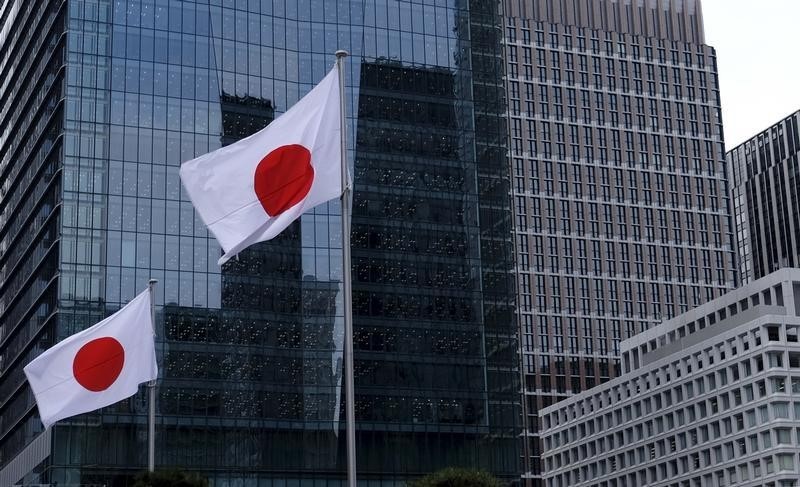Investing.com-- The Japanese economy shrank more than expected in the third quarter as sticky inflation and a weak yen dented private spending, while demand in the country’s biggest export destinations also worsened.
Gross domestic product shrank 0.5% in the three months to September 30 from the prior quarter, preliminary data from the Cabinet Office showed on Wednesday. The reading was lower than expectations for a contraction of 0.1%, and slowed sharply from the 1.1% growth seen in the prior quarter.
Year-on-year, the Japanese economy shrank 2.1%, much more than expectations for a drop of 0.6%, and a sharp reversal from the 4.5% growth in the prior quarter.
The reading was Japan’s first GDP contraction in three quarters, and signaled that the consumption-driven growth seen in the Japanese economy may now be slowing after a strong run earlier this year.
Wednesday’s reading was driven chiefly by a sharp deterioration in private demand, as household spending, retail consumption and private investment slowed amid relatively high inflation and a weakening yen.
Private consumption accounts for more than half of Japan’s economy, and fell 0.2% during the quarter.
Japanese consumer inflation has remained above the Bank of Japan’s 2% target for nearly two years, amid increased import costs, ongoing labor shortages and relatively higher wages.
The BOJ also forecast higher inflation at its latest meeting. But an exit from the central bank’s ultra-dovish, stimulus-heavy policy may now be in question, given the sharp slowdown in Japanese economic growth.
Sticky inflation is expected to spur the bank into eventually phasing out its ultra-dovish stance. But Governor Kazuo Ueda has stressed on the need to keep policy loose, at least until the economy is strong enough to spur enough wage growth to push up inflation.
Government spending remained sluggish through the quarter, while a widening trade deficit also weighed on the economy as Japanese exports slowed and imports remained steady.
Weak economic conditions in Japan’s biggest export markets- particularly China- spilled over into the country, chiefly denting export-oriented firms such as automobile and electronics manufacturers. Weakness in China is also expected to keep export conditions muted in the coming months.
Japan's heavy dependence on food and fuel imports has also stymied economic growth in recent years, especially as geopolitical disruptions ramped up import prices.
